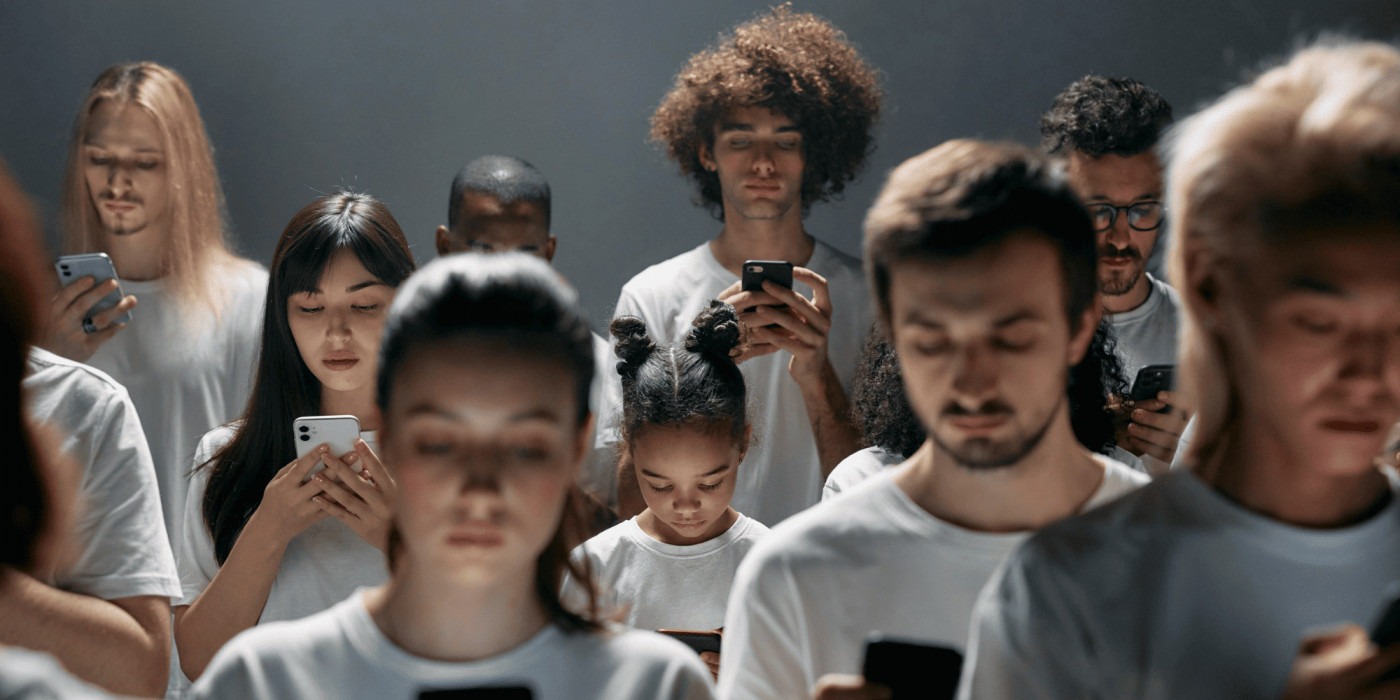What impact is social media having on students’ mental health?
Students are spending more time on screens now than at any other time in history. We live in a hyper-connected world where, for many, a life without social media is difficult to imagine. Platforms such as Instagram, TikTok, and X (formerly Twitter) have transformed the ways in which we communicate, share experiences, and consume information.
Of course, there are positives, like the connections with peers and access to endless information. But how much is too much? From checking campus events, completing assignments, and scrolling through TikTok – it seems like everything we do now involves screens or social media. And as students, we must ask: is this level of connectivity helping us, or is it doing more harm than good?
The Boar recently conducted a survey to understand just how much time students are spending on social media each day. The results? Eye-opening. Only 10% of students said they spend less than an hour on social media daily. Meanwhile, over half of respondents (51%) admitted to using it for three or more hours a day – including nearly 20% who spend over four hours on social media daily.
Think about this – if the average life expectancy in the UK is approximately 80 years and you spend just 3 hours a day on social media, that adds up to 7.5 years of your life over the next 60 years lost to scrolling. Is it worth it?
Our survey found that 76% of students feel the urge to check social media ‘often’, ‘very often’, or ‘constantly’
It is clear that social media isn’t something we check every now and again – it has become ingrained in our daily routines. Whether it’s a quick scroll while eating or hours spent on reels, the time investment is evidently huge.
As one student pointed out: “I always used to think social media had a balance of positives and negatives, but as I’ve grown older, I’ve started to notice that there are more negative aspects than positive.”
It is not just our time being stolen. It is our focus too. Our survey found that 76% of students feel the urge to check social media ‘often’, ‘very often’, or ‘constantly’, even while engaged in other tasks. This really does emphasise the grip social media is having on the attention spans of people around the world. And attention is one of the most valuable currencies we humans have.
The term ‘brain rot’ remarkably won Oxford’s 2024 Word of the Year Award. This term has been used to describe the mental fatigue and diminished focus caused by excessive screen time – and it’s clear that students are feeling the impact. In The Boar’s survey, a striking 86% of respondents admitted that social media affects their ability to engage in challenging tasks such as studying, reading, or problem-solving. Of these, 44% said the effect was ‘significant’.
A striking 70.6% admitted to feeling ‘distracted and unable to concentrate’
The impact social media has on students’ emotional and mental wellbeing is also becoming increasingly evident. In the same survey, when asked about how social media usage affects their mental health, around half of respondents reported a ‘neutral’ effect, suggesting that while they may not perceive immediate harm, it also fails to provide significant positive value. Alarmingly, 39% identified the impact as negative and 7.8% labelled it ‘very negative’. These figures highlight a growing concern that, for many, social media is doing more harm than good when it comes to mental health.
This effect on mental health is mirrored in how students feel after using social media. In the same survey, students were asked to tick all the feelings they felt after using social media and negative feelings were selected much more often. For example, a striking 70.6% admitted to feeling ‘distracted and unable to concentrate’, while 31.4% reported feeling ‘overwhelmed’, and 29.4% felt ‘anxious or stressed’. In contrast, more positive emotions like feeling ‘relaxed’ (19.6%) or ‘motivated to take action’ (17.6%) were far less common. Together, these findings point to a troubling disconnect between social media’s intended purpose – to connect and uplift – and its actual effects, which often leave students mentally drained.
Finding a balance between social media and everyday life remains a challenge for many students, yet it’s clear that some are actively trying to curb its influence. According to The Boar’s survey, 66.7% of respondents reported engaging in alternative activities such as exercise or reading to manage their social media habits, while 29.4% set screen time limits and 21.6% took regular breaks. All of which are effective strategies for curbing the influence social media has. Still, 17.6% admitted to not using any strategies at all.
One respondent expressed the difficulty of escaping social media’s pull: “It is hard or even impossible to completely detach yourself from social media as communication and news rely on it.”
Clearly social media is here to stay, but how we use it matters. By finding balance, we can reclaim our time, focus, and mental well-being, ensuring that social media enhances rather than hinders our lives.

Comments